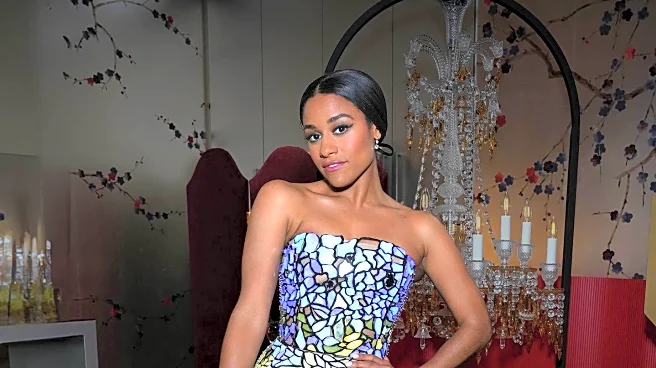What's Happening?
US teenagers are increasingly turning to African designers for custom-made prom dresses, creating a booming business for fashion designers in Nigeria and Ghana. This trend has been fueled by social media platforms like TikTok and Instagram, where teens showcase their unique gowns, often inspired by traditional African designs. The dresses, which range from $600 to $1,500, are significantly cheaper than similar custom-made garments in the US. Designers like Shakirat Arigbabu and Victoria Ani have seen a surge in orders, with Arigbabu's team in Nigeria fulfilling 1,500 orders this prom season alone. The dresses are known for their bold designs and unique embellishments, often incorporating elements like corseted bodices and feathered trains.
Why It's Important?
This trend highlights a growing cultural exchange and appreciation for African fashion among US teens, offering a platform for African designers to expand their reach and influence. The demand for these dresses not only boosts the African fashion industry but also provides economic opportunities for designers and artisans. However, the recent imposition of a 15% US tariff on goods imported from Nigeria poses a challenge, potentially increasing costs and affecting competitiveness. Despite this, the trend reflects a broader shift towards global fashion influences and the desire for unique, culturally significant attire among young consumers.
What's Next?
Designers are adapting to the increased demand by transitioning to a ready-to-wear model, allowing for quicker shipping and potentially reducing costs. They are also exploring alternative markets and efficiency improvements to mitigate the impact of tariffs. As the trend continues to grow, it may lead to further collaborations between US consumers and African designers, fostering a deeper cultural connection and expanding the global fashion landscape.
Beyond the Headlines
The popularity of African prom dresses among US teens underscores a shift in cultural identity and self-expression, as young people seek to connect with their heritage through fashion. This trend also raises questions about the sustainability and ethical implications of fast fashion, as designers strive to balance demand with responsible production practices.











